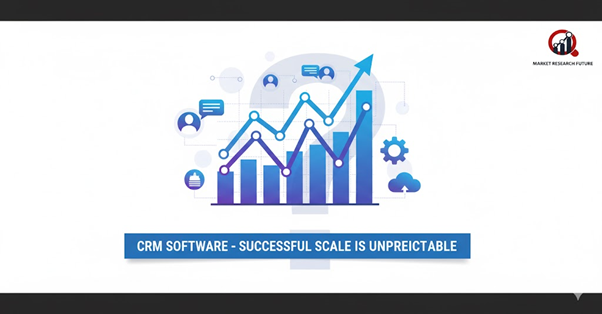CRM Software: Successful Scale is Unpredictable

Introduction to the Global CRM Software Market
Technological advancements and integration of AI and ML have led firms to augment the global CRM software market. The progress of the sector, therefore, can be marked at an impressive CAGR of 11.5% through 2035, helping the realm of CRM software reach USD 153.35 billion by then, uplifting the ecosystem from USD 46.30 billion in 2024.
A customer relationship management system is software designed to help companies maintain and manage relationships with customers. A common use is tracking potential and active leads from the first point of contact through their entire purchase history, while monitoring the methods that best convert prospects into customers.
There are many types of CRM systems, and there is no single “best” CRM for every business. Effectiveness depends on the specifics of each organization. While some companies swear by their CRM, research shows that it may sometimes be more of a by-product than a necessity for attracting and retaining customers.
Features of CRM Software
- Marketing Features: These tools help companies engage with customers continuously. Beyond simply recording contact information and meeting dates, marketing features provide insights into how well messages resonate and when it is most effective to reach out.
- Support Features: CRM systems improve communication with customers by offering client-specific views of emails, support tickets, and interactions. This allows real-time issue tracking and eliminates the need to rely solely on notes.
- Value-Added Features: Some CRM packages include additional tools like lead generation, workflow automation, and performance tracking, which improve efficiency and contribute to the company’s bottom line.
A CRM system centralizes customer data, including contact details, service history, and orders. Its mission is to simplify business management by consolidating all customer information in one place.
Understanding what customers want is crucial for any successful product. CRM software automates data collection and analysis, helping businesses identify customer preferences, behaviors, and pain points.
By tracking patterns such as location, interests, or feedback, companies can tailor products and services to meet customer expectations, improve satisfaction, and foster loyalty.
Regional Analysis
In North America, CRM adoption is growing due to the demand for automation and AI-driven analytics in customer engagement. Europe is focusing on cloud-based CRM solutions to streamline business operations.
Asia-Pacific shows rapid growth as small and medium enterprises increasingly implement CRM software for sales tracking and customer support. South America is seeing gradual adoption, driven by rising e-commerce activity.
In the Middle East and Africa, CRM systems are being introduced to improve customer service in retail and telecom sectors, supporting expansion and digital transformation initiatives.

Leave a Comment